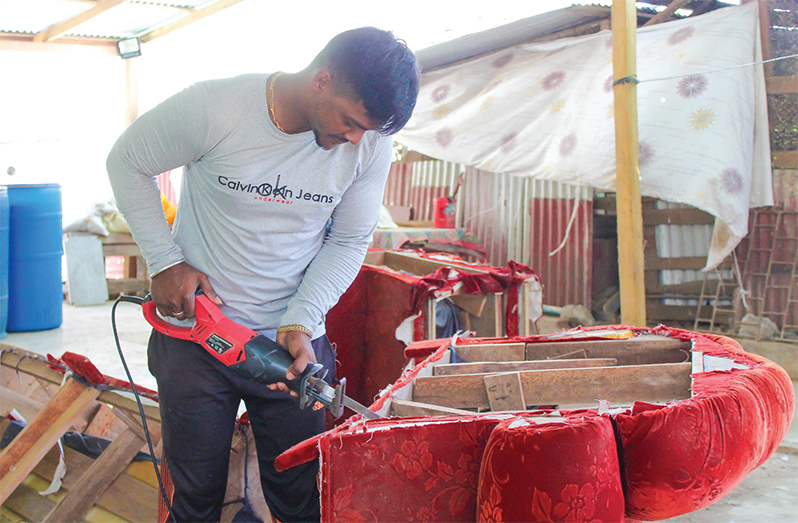The young people of the Corentyne step up to the plate
WITH a population that is well under 200 people, the community of Maida does not boast many young people. Most of the people who call Maida home today ventured into the community at some time or another. There is, however, a newer generation of young people born and bred by the unique culture crafted by the little village of Maida; they are taking steps towards developing their community.
The farming communities of Bushlot and Bushlot Farm are Maida’s neighbours. Like its counterparts, the village was once known as a farming community. Today, the village has seen an influx of small businesses while entrepreneurs are in every home. Farming, however, is still alive and well. But the demographic of those farming may not be who you would assume.
Farming is often considered an old way of life and is associated with older people. Although farming may not be seen as something young people would be interested in, the young people of Maida say that not only are they interested, they are taking big steps into the field of agriculture.

Dillon Mohanlal is 25 years old and lives in the community of Maida. He has always known the village to be his home, never having lived anywhere else. As a young man living in Maida, Dillon’s primary work is in the field of upholstery. But he works with his father on their farm, where the two plant watermelons. Dillon shares that, on the Corentyne, agriculture has become blended into everyday life. Maida is a community where everyone farms, and agriculture is seen as a life skill and something taught to sons by their fathers.
Dillon describes his upbringing in Maida as simply peaceful. Like life in more rural parts of Guyana, Maida is a village where neighbours live like family, and everyone has an unbreakable bond and a profound sense of community. “Growing up here, it was always a peaceful village,” he said. Dillon explained that Maida is so small and close that most of the people he knew from childhood still live in the community, and many of them are taking up agriculture. “Growing up was nice. I still have my friends I grew up with all around,” he said.
True to what life in the countryside means, Dillon shares that unity is a part of Maida’s culture, so much so that the idea of thieves is taboo. He stated that “It is nice living here. We can be late on the road at night. We can leave everything outside. We do not have problems with anybody.”
As the youngest of five siblings, Dillon has been tasked with staying at home with his parents. Apart from repairing chairs part time, agriculture is what Dillon and his family mostly do. It is also what Dillon enjoys. The father and son duo have a few acres of land by the roadside just outside of Maida. “My father has been farming for about 15 years. I used to go and help him on the farm and I was with him all the time,” Dillon shared.
Dillon remembers going to primary school and walking to the farm that was just across the road at the end of the school day. He would help his father prepare land and plant watermelon and citrus seedlings while his mother brought the pair food after a long day’s work. Today, not much has changed, said Dillon, “I used to go and help my father plant. Until today, the same thing is going on.”
The way that Dillon undertook farming with his father is the story of many young men in the community. Most of the boys Dillon grew up with have similar experiences, and many of them are still largely involved in agriculture. “Around this area, there are people in my age group that do farming. A few of them are people like my friends,” Dillon said.
The culture of planting what one needs plays a big role in the way of life in the community. Surviving largely off the land makes living in a place like Maida an experience very unlike life in an urban space like Georgetown. “For me, this side is more nice in terms of financial situations,” Dillon shared.
He expressed that because agriculture has been integrated into everyday life, fresh fruits and vegetables are never bought from a supermarket. Dillon explained that in his visits to Georgetown, he saw the differences between his life and those living in the capital city. He stated that, “Over here, you can get anything at anytime fresh. You can ask your neighbour. But in town I do not believe that you can ask your neighbour for anything in town.”




.png)









